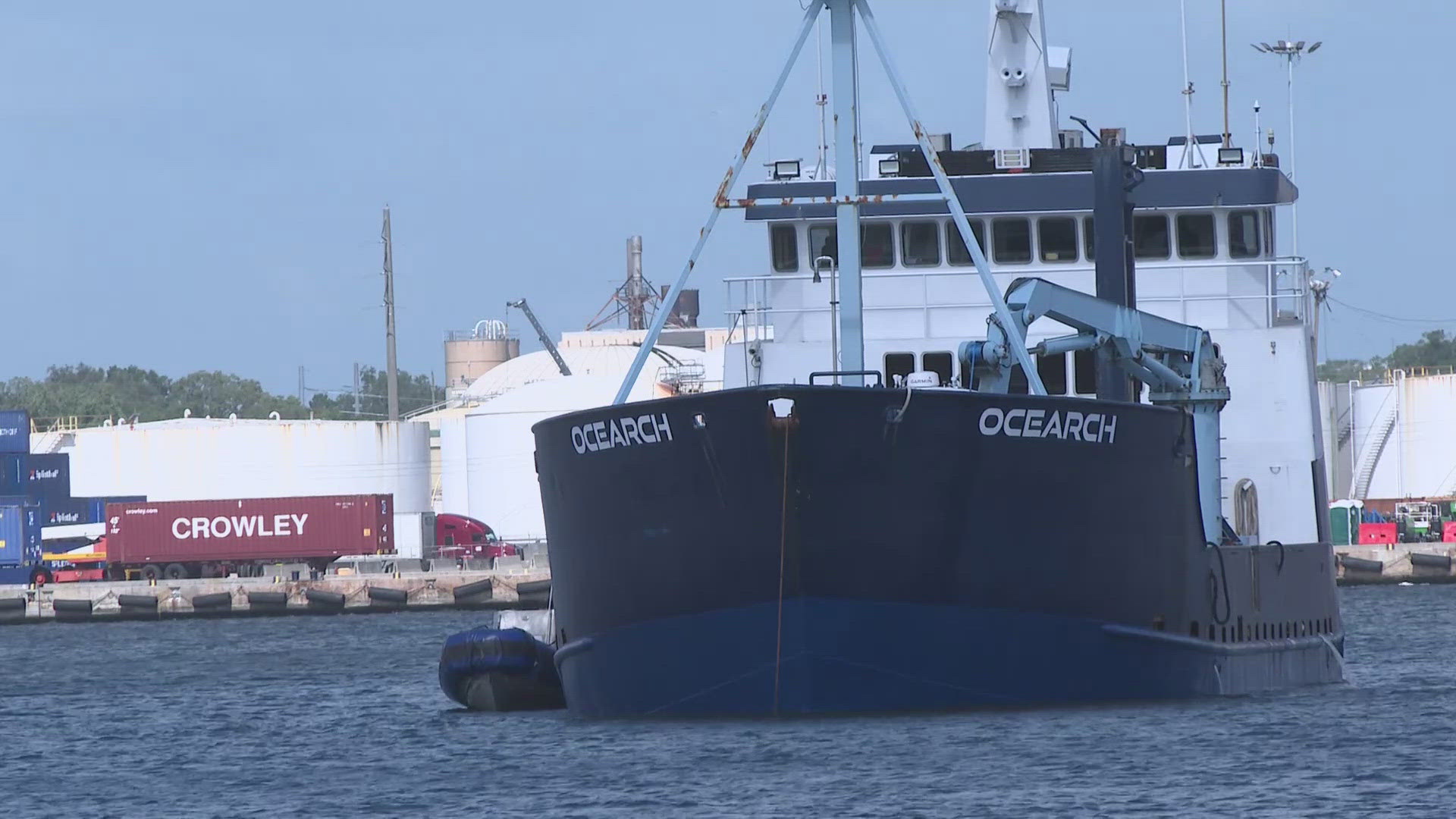JACKSONVILLE, Fla. — The movie "Jaws" has a famous line when the great white shark rises out of the water and the stunned sheriff says, "I think we're going to need a bigger boat."
Ocearch, the global shark-tracking organization, doesn't need a bigger boat. But for years, it's been trying to get a bigger headquarters as a home base for its ocean-traversing research expeditions.
That pursuit is finally coming together with $10 million in state assistance to the partnership of Ocearch, Jacksonville University and the city of Jacksonville for building the base in Mayport, the historic fishing village whose partially abandoned waterfront has been waiting years for new construction.
Ocearch founder Chris Fischer said with the latest round of funding approved in the state budget signed last Thursday by Gov. Ron DeSantis, the group is ready to move toward building the vision it has for a base in Mayport that would combine lab space for marine science research with museum-style exhibits and displays for the general public.
"It's going to be a bustling place," Fischer said Tuesday at the Jacksonville University campus for an announcement of what's next for Ocearch.
With its miles of coastline, Florida already is a leader in the nation in both shark bites and shark research. The temporary closure of some northwest Florida beaches in early June after two shark attacks was a reminder of the state's standing as the shark bite capital of the United States.
Jacksonville University isn't the only school in Florida that has shark research as part of its marine biology program, but its match with Ocearch since 2017 offers the potential to attract visitors to Mayport. Ocearch has built a huge following on social media for its shark tracking app and posts on Instagram, X and Facebook on the latest "pings" from those sharks.
Fischer said the new headquarters building in Mayport brought in virtual reality designers and teams that have done work at SeaWorld and aquariums in Houston and Denver. He said when it's up and running, he expects two school buses a day will bring Duval County school children to the building for tours. The plan also calls for a residential building where students from colleges besides Jacksonville University can stay while learning more about Ocearch's research.
"We will be the epicenter of understanding the ocean's great white sharks," he said.
Fischer is about to launch his 47th expedition, this time off the coasts of France, Spain and Ireland to study white sharks that are critically endangered in the Mediterranean Sea. JU President Tim Cost said other shark research institutes tend to focus on the ocean off the coast where they're located, but Fischer has built Ocearch to have a worldwide scope.
"He's bringing back global knowledge," Cost said. "He's in the classroom without students. He's taking them out on his ship. I do think that sets us apart in a way that gives us a much broader view of the oceans and the great white shark and what it means."
The headquarters for Ocearch will go on vacant waterfront land where the city recently built a $6 million pier for Ocearch to docks its ship in Mayport. Fischer said groundbreaking for the headquarters is set for later this year with plans to have it open for research and visitors by early 2026.
The first attempt at securing state funding ended with Gov. Ron DeSantis using his line-item veto pen to erase $7 million from the 2022-23 state budget. But JU and state lawmakers tried again the next year and DeSantis backed $5 million for the base followed by another $5 million in the 2024-25 budget he signed last week.
Fischer said the state support combined with the institutional stability provided by Jacksonville University and the city's backing puts Ocearch in a position to bring its research to other countries. He said the ocean off the East Coast is "returning to the way it once was" with marine life at levels that haven't been seen since the 1950s and 1960s.
"We are winning," he said. "We have become a model for the world off the east coast of the United States on how to bring an ocean back. And that allows us to share that with the rest of the world, inspire the rest of the world."

